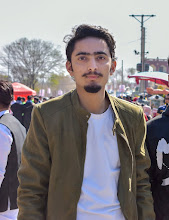1) Preface
The constitution of Pakistan 1973 is partly parliamentary and partly presidential in itsnature. The president of Pakistan runs the business of the state while the prime
minister represents the unity of the Islamic Republic of Pakistan. In the existing
parliamentary system of government, President of Pakistan is considered the ceremonial
head of the state
2) The constitutional position of President
The president is only a constitutional head of the state. The constitution declares thatthe president shall act in accordance with the advice of the prime minister.
3. Relay Article
Constitution of Pakistan Relay Article 54,56-1,58-1,75,89,45,232,235,153,155,213-221,101,92,91-2-A,213,243,24-M,156,160,243-A,243-2,
4) Modes of exercising power
Following are the modes of using of power of the president of Pakistan1) By his own discretion
2) On the advice of Prime Minister
4) Powers and functions of the president
The following are the different powers of the president. Details are as under.1. Legislative powers
I. Summoning of parliamentThe president has the power to summon one or both houses of parliament in a joint sitting
to meet at any time and place as he thinks fit.
II. Address the parliament
The president can address one or both houses of the parliament and can demand the
attendance of all members of parliament.
III. Right to speak in Parliament
The president has a right to speak in Parliament.
IV. Dissolution of National Assembly
The president has the power to dissolve the National Assembly on the advice of Prime
Minister and assembly will be dissolved within the 48 hours after the advice
V. Promulgation of ordinance
The president has powers to promulgate the ordinances within Pakistan.
VI. Power of referendum
The president has the power to hold a referendum if there is a matter of national importance
VII. Appointment of caretakers of cabinet
The president has the power to appoint the care-takers of the cabinet.
2. Judicial powers
I. Appointment of chief justice of the Supreme CourtThe chief justice of Pakistan is appointed by the president of Pakistan.
II. Appointment of Chief justice of the high court
The chief justice of Pakistan is appointed by the president of Pakistan.
III. Appointment of additional judges of the high court
All the additional judges of the high court are appointed by the president of Pakistan.
IV. Fixation of salaries of judges
The salaries and other allowance of the judges are fixed by the president of Pakistan.
V. Transfer of judges
The president can transfer the judge of one high court to another high court in the
country.
VI. Power of pardon
The president of Pakistan has special powers to pardon the offenders who have
been punished by the courts.
3. Foreign powers
I. Settlement of mattersThe president of Pakistan has the power to settle foreign affairs.
II. Appointment of ambassadors
All the ambassadors are appointed by the president of Pakistan.
III. Appointment of representatives in the United States
All representatives in the United States are appointed by the president of Pakistan.
4. Executive powers
I. Proclamation of emergencyThe president has the power to proclaim emergency in the country.
II. Appointment of governors
All the governors of the provinces are appointed by the president of Pakistan.
III. Appointment of the attorney general of Pakistan
The Attorney-general of Pakistan is appointed by the president of Pakistan.
IV. Chief election commissioner
The chief election commissioner is appointed by the president of Pakistan.
V. Members of the council of Islamic ideology
Members of council of common interest are appointed by the president of Pakistan
VI. Members of the council of common interest
Members of council of common interest are appointed by the president of Pakistan
VII. Members of the national economic council
Members of council national economic council are appointed by the president of the
Pakistan
5. Military powers
I. Declaration of warThe president of the Islamic Republic of Pakistan has the power to declare war.
II. Settlement of peace
The president of Pakistan is responsible for the settlement of the peace within the
country and he plays a pivotal role in this regard.
III. Appoint of chiefs of army staff
Chief of Army Staff, Chief of Navy, and chief of the Air force are appointed by the President
of Pakistan.
IV. Send the army to another country for peace
President has the power to send an army for the help of other countries.
5) Preclude Remarks
To Preclude, we can say that in the constitution of 1973 parliamentary system ofgovernment was introduced in the country. President is the head of the state. He is
elected by the parliament so his election is indirect. His tenure of office is five years but
he can resign from his office. The procedure his election is difficult and complicated
You may also like:
This is the post on the topic of the Functions and Powers of President of Pakistan - Constitutional law Notes LLB. The post is tagged and categorized under in
Education News,
LLB Notes
Tags. For more content related to this post you can click on labels link.
You can give your opinion or any question you have to ask below in the comment section area. Already 0 people have commented on this post. Be the next one on the list. We will try to respond to your comment as soon as possible. Please do not spam in the comment section otherwise your comment will be deleted and IP banned.








No comments:
Write comments